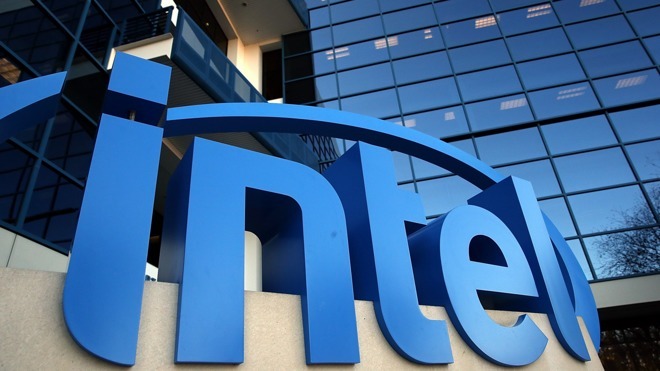After numerous failed attempts to break into the wearables market, Intel plans to pull the plug on its New Devices Group, a project in which the company invested hundreds of millions of dollars.
As reported by The Information on Wednesday, the New Devices Group, or NDG, will be shut down in the near future, with current employees to be relocated to other Intel divisions or laid off. The group was thought to include some 200 workers earlier this year, the report said.
Intel confirmed the closure to The Verge, saying in a statement that it plans to shelve NDG's last major project, a pair of smart glasses dubbed Vaunt.
An AR-infused headset masquerading as a pair of prescription eyeglasses, Vaunt used advanced optical technology to beam digital information directly onto a user's retina. Intel was reportedly working with hardware providers to secure a path to retail this year, but apparently failed to strike the deals necessary to bring the fledgling idea to market.
NDG started life in 2013 under the guidance of former Apple and Palm executive Mike Bell. At the time, Intel was looking for new growth markets to complement a commanding lead in the semiconductor business.
The wearables sector, namely smartwatches, was one of the first areas of interest for NDG. In 2014, Intel snapped up smartwatch maker Basis for a reported $100 million to $150 million in an effort to build out its health-related product offerings. That acquisition was followed by the purchase of Recon, manufacturer of heads-up display hardware for action sports enthusiasts.
Intel also struck deals to develop and embed burgeoning wearable technology into products marketed by major consumer brands including TAG Heuer, New Balance and Oakley. Specifically, Intel tech ended up in the TAG Heuer Connected watch and Oakley Radar Pace smart eyewear.
Signs of trouble surfaced last year when reports indicated NDG had plans to disband its wearables division as it focused on AR projects, presumably Vaunt. Intel refuted those claims, saying it had "several products" in the pipeline, though the devices never materialized.
According to The Information, NDG went through a number of reorganizations after Bell left Intel in 2015. The company last year began to whittle down NDG's workforce, which is said to have hit about 800 employees in 2016. Of those remaining workers, many were shifted to the smart glasses project, sources said.
Apple also bet big on wearables over the past five years, but unlike Intel has seen success with Apple Watch. Launched in 2015, Watch has quickly gained marketshare thanks to yearly hardware and software updates that deliver enticing new features, the most recent being cellular connectivity with Apple Watch Series 3. In March, market research firm IDC estimated Apple to have shipped some 8 million Apple Watch units over the December quarter, a figure surpassing that of industry rival Fitbit.
The Cupertino tech giant is also rumored to bring an AR headset to market. Reports late last year claim the company is working to develop the requisite technology by 2019 ahead of delivery in 2020.
 Mikey Campbell
Mikey Campbell







-m.jpg)






 Marko Zivkovic
Marko Zivkovic
 Christine McKee
Christine McKee
 Andrew Orr
Andrew Orr
 Andrew O'Hara
Andrew O'Hara
 William Gallagher
William Gallagher

 Mike Wuerthele
Mike Wuerthele
 Bon Adamson
Bon Adamson




-m.jpg)



19 Comments
Apple is doomed. /s
Apple only barely gave the Apple Watch enough variety and that was for a product that is mostly hidden. To think that a set of smart glasses, (a far more personal item), could ever be anything more than a nerdy gadget is ludicrous.
We can thank Intel for demonstrating the difference between Apple and everyone else: patience.
Intel is shedding all the fat in preparation of being acquired by Apple!!